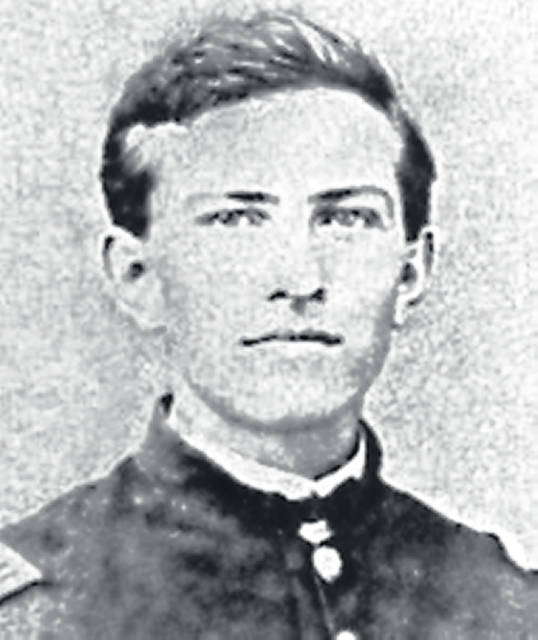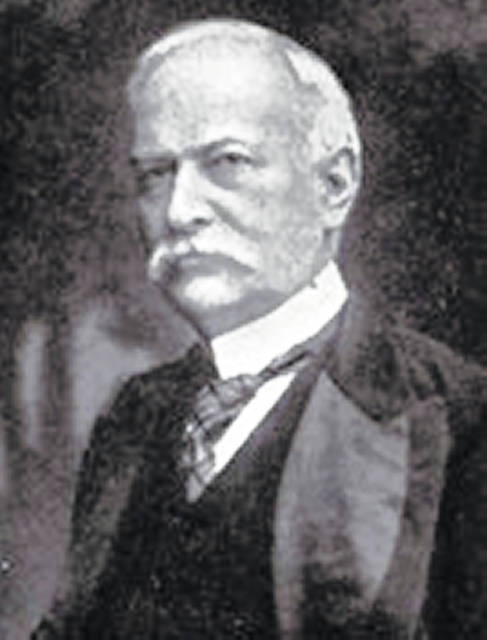

Highland County has perhaps never seen such a brave soldier, politician and activist as Joseph B. Foraker.
Born in rural Rainsboro in 1846 to Henry and Margaret Foraker, young Joseph grew up on a comfortable homestead. At an early age he developed a passion for politics as a staunch Republican and supporter of presidential candidate Abraham Lincoln. He attended rallies and marches with pro-Lincoln groups such as the Wide Awakes.
At age 16, Foraker enlisted in the Union army. He saw action in the Civil War a number of times, accompanying General William T. Sherman on his March to the Sea. Bu June of 1865, he had become a captain. He was only 19.
After his military days, Foraker pursed his passion for politics and law. He enrolled in the Salem Academy at Ohio Wesleyan University. He later studied law at Cornell University in Ithica, New York, becoming a member of Cornell’s first graduating class in 1869. Once out of college, Foraker set out to start his own law practice in the up-and-coming city of Cincinnati.
In 1879, Foraker first tried his hand at Ohio politics. He was elected as a judge in the Cincinnati Superior Court. He attempted to run for governor in 1883, but was defeated by the Democratic candidate, George Hoadly. Finally, in 1885, Foraker became governor of Ohio. During his term he enacted policies to prevent voter fraud, approved a law that taxed alcoholic beverages, and established a state board of health. He was elected to a second term, but failed to secure a third.
Foraker married Julia A. P. Bundy in 1870. They had five children. By all accounts Julia was a supportive and loving wife.
Foraker also held the position of Ohio senator from 1897 to 1909. As senator, he supported the Spanish-American War and most political policies of president William McKinley. Although Foraker identified as Republican, he frequently voted with his morals instead of with his political affiliation. He was the only Republican to vote against the Hepburn Act of 1906, a policy that would strictly regulate railroads.
Foraker was a man of morals and strict abolitionist beliefs. In one incident known as the Brownsville Affair, 126 African American soldiers camped outside of a rural town in Texas. During the night, a white bartender was shot to death and a police officer was wounded. Despite no evidence pointing towards the regiment, President Theodore Roosevelt dishonorably discharged the men. Foraker was furious. He strongly believed in the innocence of the men and made his thoughts known.
During the 1907 Gridiron Dinner, Roosevelt stood and gave a speech of humorous comments and small talk before dinner, defending his actions during the Brownsville Affair and poking fun at Foraker for his political views. Although it was not permitted, Foraker stood and challenged the president’s stance and spoke for racial justice amidst dozens of high-ranking political officers. Roosevelt was shocked and humiliated.
According to the Washington Post, Foraker, “gave the president the plainest talk he had probably ever listened to.” Roosevelt biographer Morris stated that, “Never before, at the Gridiron or anywhere else, has a president been challenged before an audience.”
It seemed that Roosevelt held a grudge. He encouraged other political leaders to speak out against Foraker and contributed to his “banishment” from the world of politics. Foraker was so ostracized that he failed to secure the nomination for Republican candidate for president.
The final nail in the coffin for Foraker was his involvement with the Standard Oil Company. He served as a lawyer for the company and exchanged many letters with the huge enterprise throughout his career, but going into the 1900s, government involvement with private companies was frowned upon and highly suspicious to the general public. Roosevelt’s dislike for Foraker was apparent to all, and as Roosevelt gained popularity, dislike for Foraker grew. His career had been successfully put out by Roosevelt, all for speaking his mind on controversial racial issues.
Foraker died in 1917, a year after releasing his memoir, “Notes of a Busy Life.”
His impact on history is apparent. His controversial opposition of Roosevelt’s dealings in the Brownsville Affair was a bold and admirable move in the fight for racial justice. In 1972, the soldiers at Brownsville were officially pardoned and the record changed to classify their discharge as honorable.
Governor Foraker Place, which runs behind the Highland County Courthouse in Hillsboro, is named for him.
Source: https://ohiohistorycentral.org/w/Joseph_B._Foraker.
Isabella Warner is a stringer for The Times-Gazette



